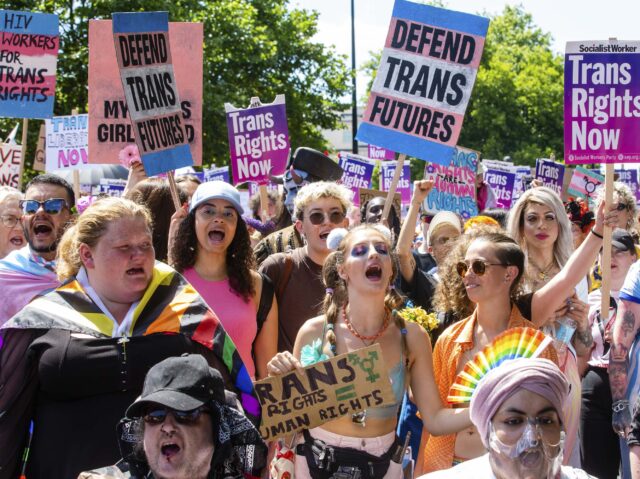A now-infamous LGBT NGO has been left scrambling to clarify one of its tweets claiming that babies can identify as being “trans”.
An LGBT non-profit that is prevalent in the push for transgenderism within the United Kingdom has scrambled to “clarify” a social media post it made last week which claimed that babies can identify as being “trans”.
Published on Friday last week seemingly in response to a piece about an alleged “gender nonconforming” 4-year-old, the post by LGBT org Stonewall UK claimed that “research suggests that children as young as 2 recognise their trans identity”.
However, with the organisation’s claim having garnered widespread criticism amongst netizens, the organisation has now decided to clarify its “unclear” meaning, saying that the post was actually meant to be about gender stereotyping.
“On Friday we put out a tweet that was unclear, relating to gender stereotypes and nursery age children, leading some supporters to ask us what we meant,” a statement published by the organisation on Monday read.
“While we don’t actively work on nursery education, we believe that young children should be able to play, explore and learn about who they are, and the world around them, without having adults’ ideas imposed upon them,” it continued, apparently without irony. “We support existing provisions to ensure primary and secondary school pupils learn about LGBTQ+ identities in an age-appropriate and timely manner.”
While Stonewall UK garnered significant criticism last week for its position saying that babies can allegedly identify as “trans”, it is far from the only LGBT organisation to do so.
For example, the Transgender Equality Network Ireland (TENI) NGO — an organisation that has had its funding cut in the past over significant issues to do with its accounting — has material on its website making similar claims.
What’s more, TENI actually cites a source for its claim, which is research conducted by Elizabeth Anne Riley et al, which can be found in a paper published back in 2013.
Titled, Surviving a Gender-Variant Childhood: The Views of Transgender Adults on the Needs of Gender-Variant Children and Their Parents, the document published in the Journal of Sex & Marital Therapy claimed that 48 per cent of individuals who experience “gender variance” recognised their condition between the ages of 0 and 5.
“Trans people are increasingly articulating their gender identity at a younger age,” the TENI document read. “International research suggests that the majority of older trans people were aware of their gender identity at a young age.”
The document goes on to provide “recommendations” to schools to “provide a safe, supportive and affirming environment for trans students” by allowing children to use the bathroom and locker room of their “gender identity”, and to ” create and enforce nondiscrimination and anti-bullying/harassment policies that explicitly protect gender identity and gender expression”.

COMMENTS
Please let us know if you're having issues with commenting.